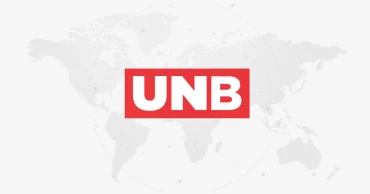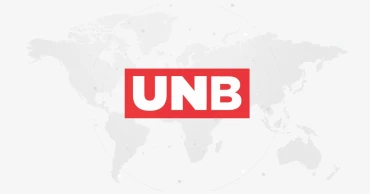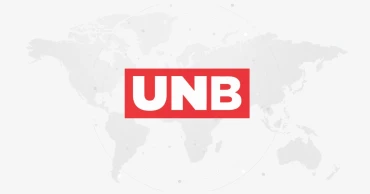Relations
Relations with US still 'excellent', insists Hasan Mahmud
Information Minister Hasan Mahmud said the relationship between Bangladesh and the United States remains excellent despite recent comment regarding US sanctions by PM Sheikh Hasina.
“We have taken several positive decisions in recent times to enhance our relations with the United States,” he said, while speaking at a press briefing in the Secretariat this afternoon.
Mahmud emphasized the government's desire to strengthen ties with the US.
Also Read: PM strikes defiant tone in face of US pressure
Highlighting the need to diversify trade opportunities, Mahmud mentioned that Bangladesh has not been able to increase trade with countries of South America.
He also stressed the importance of expanding trade with the Middle East beyond labour export, given the increased purchasing power and awareness in the region.
He also emphasized the trade potential in ASEAN countries and the Oceania region, citing the Prime Minister's interest in exploring these opportunities.
Also Read: New visa policy to help PM Hasina's govt in holding fair elections: US
“Prime Minister's remarks regarding the US visa policy were intended to alleviate concerns and ease tension for those worried about obtaining US visas,” he said.
Earlier, Prime Minister Sheikh Hasina on Saturday said it doesn't matter at all if someone goes to the USA crossing the Atlantic Ocean on a 20-hour- plane journey.
“There are other oceans and other continents in the world, we will make friends with those continents crossing the other oceans. Our economy will be stronger and more developed and vibrant,” she said firmly.
Also Read: US govt’s new visa policy does not bother Bangladesh government: Shahriar Alam
Hasan Mahmud also mentioned that Bangladesh's budget deficit stands at 5.2 percent, whereas in comparison, India's deficit is 5.9 percent, the United States' is 6 percent, and the United Kingdom's is 5.5 percent.
He referred to the proposed budget for 2023-24 as "people-friendly and poor-friendly," stating that the government aims to increase the number of direct beneficiaries and the number of allowances provided.
Also Read: People, not PM, to decide whether they go to USA or not: BNP
He further said that around two crore people would directly receive various forms of government assistance, including financial aid.
In addition, he announced that a list containing the names of individuals involved in arson attacks, as well as their instigators and financiers, would be disseminated to relevant authorities.
2 years ago
Korean envoy sees brighter future of Dhaka-Seoul relations
A two-day trade show titled ‘Showcase Korea’ began in Dhaka on Saturday demonstrating that Bangladesh and South Korea are willing to further strengthen and deepen the bilateral relations and take the relations into a higher level.
Prime Minister's Adviser on Private Industries and Investment Salman F Rahman joined the opening session as the chief guest that is displaying the latest products and technologies.
South Korean Ambassador to Bangladesh Lee Jang-keun, Mayor of North Dhaka City Corporation Atiqul Islam, President of the Korea-Bangladesh Chamber of Commerce and Industries (KBCCI) and Chairman of Meghna Group of Industries Mostafa Kamal, Federation of Bangladesh Chambers of Commerce and Industries (FBCCI) President Md. Jashim Uddin and President of the Korean Community in Bangladesh Yoo Young-ho, among others, were present.
Also Read: 2-day Korean fair begins in Dhaka Saturday
The Showcase Korea 2023 is co-organised by the Korean Community in Bangladesh and the KBCCI.
“As you see today, with the big and strong support of the business sectors, I have no doubt that the future of our relations, the next 50 years and 100 years, is very bright,” said Ambassador Lee.
Read More: Ambassador Lee visits Matarbari Coal-powered Plant to observe South Korean company’s construction work
The Showcase Korea has been a trademark of the KBCCI, which was regularly organised before the pandemic to promote the trade and business relations of the two countries.
3 years ago
A book on BD-Japan relations unveiled
A book titled ‘Bangladesh-Japan Diplomatic Relations (1972-2022): A New Paradigm of Strategic Partnership’ has been unwrapped at a function in the Japanese embassy here in Dhaka.
Dr. Md. Jahangir Alam, Associate Professor of Japanese Studies Department of Dhaka University (DU), composed the book mainly to explore the Japan-Bangladesh comprehensive relations to understand Japan’s miraculous development models and apply them in Bangladesh’s development policy initiatives.
Addressing the book unwrapping function held on Tuesday, State Minister for Cultural Affairs KM Khalid said Bangladesh can learn from the miraculous development of Japan—how this country developed from the ashes after World War-II.
He said the book has highlighted the present relation and the future direction of the relations between these two friendly nations.
Japanese ambassador to Bangladesh Ito Naoki, in his welcome speech, described this book as a historic mark in academia considering the 50 years mark of Bangladesh-Japan diplomatic relations. The book might be highly influential for future academics, he said.
Read: FM’s book on Padma Bridge unveiled
DU Pro-Vice Chancellor (Academic) Prof Dr ASM Maksud Kamal said it is an important book since Japan is a development partner of Bangladesh, which is helping Bangladesh implement some most significant megaprojects including the Matarbari deep sea port, MRT line in Dhaka, and third terminal of the Hazrat Shahjalal International Airport.
Presiding over the function, Chairman of the Japanese Studies Department Dr. Abdullah-Al-Mamun said this is one of the rarest academic endeavours in the field of bilateral relations between the two nations.
Member of Bangladesh Public Service Commission and also DU International Relations Professor Dr Delwar Hossain also spoke at the event conducted by Japanese Studies Associate Professor Shiblee Noman, said a press release.
3 years ago
Bangladesh, India enjoy excellent relations: Information Minister
Information and Broadcasting Minister Hasan Mahmud said Bangladesh and India have a very good relationship and unity is needed to take the relationship forward.
“It is very normal that we have a good relationship with India as the country contributed to our Liberation War. We have no major differences of opinion. To carry forward the relationship, we have to work together,” he said.
Hasan Mahmud said this while addressing the Bangladesh-India relations-based reporting award on the occasion of Connections 2022 of the Indian Institute of Mass Communication Alumni Association-Bangladesh (IIMCAA B) at Dhaka Club in the capital on Saturday.
Mentioning that relations between the two countries has reached a new height led by Prime Minister Sheikh Hasina and her Indian counterpart Narendra Modi, the minister said, “India had sheltered one crore Bangladeshi refugees during the Liberation War. Late Indira Gandhi had travelled to many countries to campaign for independence of Bangladesh and to free Bangabandhu from Pakistani jail. For these reasons, India’s name will be written forever in the history of Bangladesh.”
He also congratulated the award winners, saying IIMCAAB graduates can play an active role to accelerate the relationship between the two countries.
In the programme, Indian High Commissioner to Bangladesh Vikram Kumar Doraiwami said as a bosom friend India is committed to cooperating with Bangladesh to its level best.
IIMCAAB president and prime minister's press secretary Ihsanul Karim presided over the programme while IIMCAAB general saecretary Zahid Newaz Khan, senior journalist Azizul Islam Bhuiyan, among others, were present.
UNB Editor Farid Hossain also spoke at the event. He was the chief of the jury board of the Bangladesh-India relations-based reporting award.
News24 television's "Team Undercover" programme won the 2019 award for its in-depth investigation of how firearms are being smuggled into Bangladesh from India.
Prothom Alo Special Correspondent Raheed Ejaz won the 2020 award for his report: "Bangladesh-India relations through the lens of Dhaka: India wants Bangladesh as geopolitical partner."
Shamima Dola, editor of News Now Bangla, won the 2021 award for the reports "Line of credit: One of the bedrocks of India-Bangladesh ties," and "Implementation of motor vehicles agreement to increase Bangladesh-India trade by 25 percent."
IIMCAAB Joint Secretary Angur Nahar Monty conducted the programme while its Senior Vice President Azizul Islam Bhuiyan gave vote of thanks.
Also read: Huge scope of India-Bangladesh power, energy cooperation: Experts
3 years ago
‘Relations with China at a crossroads’: S Jaishankar
At the second event of the series ‘India’s Place in the World’, a collaboration between The Indian Express and Financial Times, senior policy leaders spoke on India’s diplomatic position in the new world order, and its evolving ties with the United States and China, reports The Indian Express.
On US-China relations
When one contemplates the world today, it’s important to first understand what it is not. It is not cold war 2.0 because you don’t have that kind of sharp military confrontation that the Cold War did. The systems are not as firewalled as they were in that era. A lot of things have become so much clearer in the last one year, in terms of the behaviour of states. The West isn’t cohesive, and the non-West is so differentiated. There’s nothing like the Covid-19 challenge to remind us of how interconnected and interdependent the world has become. Climate change is another example. When we speak about the US and China, there is a uniqueness to the relationship. But the point which Secretary Antony Blinken made early in the Biden administration — that the US has to have the ability to compete and collaborate at the same time — is true of all major relationships. The US-China relation is a key element of the global situation.
On the future of India-China relations
I don’t have a clear answer at this point of time. We had the border conflict of 1962 and it took us 26 years to have a prime minister visit China, when Rajiv Gandhi went there in 1988. And there was a 1988 consensus, which is stabilising the border. So if you look at the first decade of the relationship, it was focussed on that. There were two very important agreements in 1993 and 1996, which have led to another 30 years of peace and tranquillity in the border areas. Those agreements stipulated that you would not bring on large armed forces to the border and that the Line of Actual Control (LAC) will be respected. Now, what we saw last year was, frankly, China departing from the 1988 consensus. Now, if you disturb peace and tranquillity, if there is intimidation and friction at the border, obviously it’s going to tell on the relationship. So, my honest answer to you is that I think the relationship is at a crossroads. The border tensions cannot continue with cooperation in other areas.
On the expanding agenda of the Quadrilateral Security Dialogue
With the passage of time, any initiative will mature. As someone who was there when the first meeting of the Quad started, when I was still foreign secretary, I’ve seen it grow, and that the agenda has expanded. Today, you have multiple countries that have a growing degree of comfort with each other, who find that they have a shared interest in key global and regional challenges like connectivity, maritime security, technology, vaccines, resilient supply chains and climate change. The Americans are much more willing to work with other partners now. To a great degree, Japan has started to have clearer positions in terms of its own interests in the world, so has Australia. And as far as India is concerned, more than 50 per cent of my economic interests today live east of India. So, the Quad fills a gap that cannot be addressed simply by four bilateral relationships aggregated.
On relations with Europe
If I give you the Indian perspective, look at the change in our relationship with the US. It’s natural that the very same logic also makes a stronger case for a better relationship with Europe, including the United Kingdom, which is now out of the European Union. So you can see the broad strategic calculations that are unfolded with a different set of partners. We had, at one time, fairly close political relations with Europe, and then for a variety of reasons that kind of trailed off. People don’t readily figure out that the EU is our biggest trade and investment partner. From their perspective, they see the rise of India and the gains from a stronger partnership. The Prime Minister (Narendra Modi) has invested more diplomatic energy in Europe than probably any of his predecessors.
4 years ago




.jpg)


